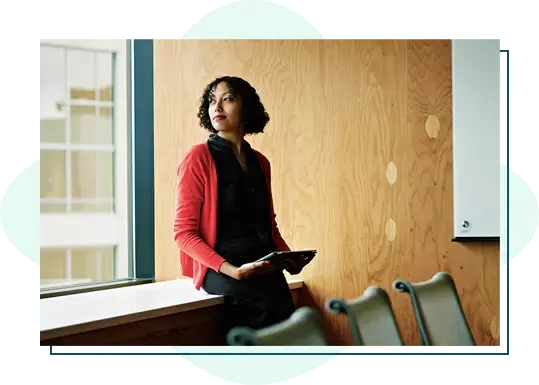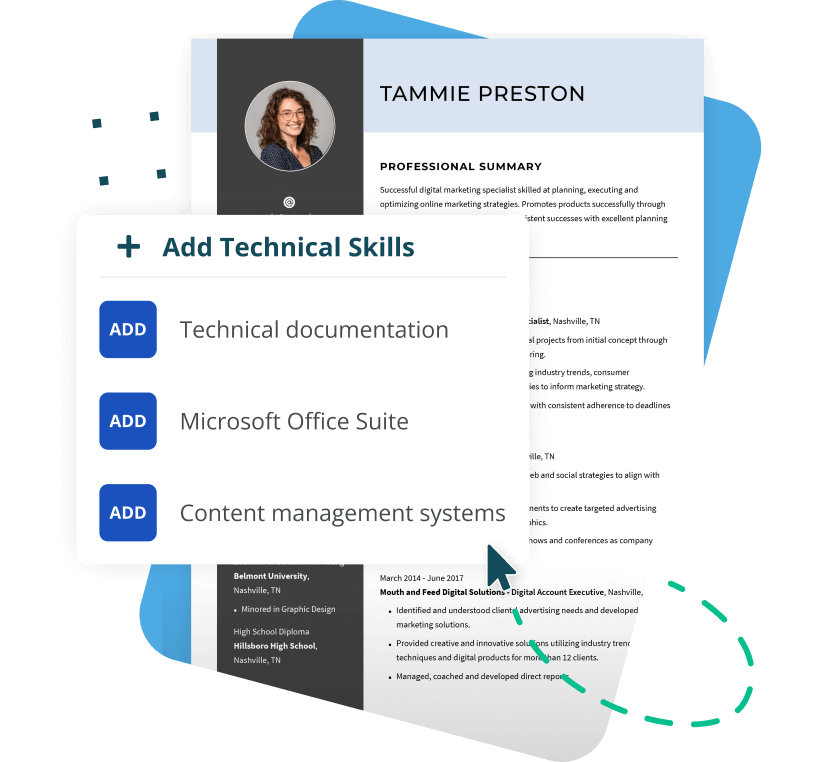- Featured in:
Critical thinking skills allow you to make crucial decisions in the workplace. These skills are fundamental in leadership positions where thoughtful judgment is necessary. However, any job seeker will benefit from critical thinking skills because it will allow you to solve problems and develop creative ways to do so.
In this article, you’ll learn critical thinking skills examples and tips on highlighting them in your resume.
Want a stronger resume? Try our resume templates. Simply edit and download. Plus, you’ll get ready-made content to add with one click using our Resume Builder.
Or view our sample resumes made with our professional templates.
What Are Critical Thinking Skills?
Critical thinking skills are soft skills that refer to an individual’s ability to be mindful, aware, fully considerate and calculated about their choices. It involves collecting information, asking thoughtful questions, analyzing problems and considering possible solutions.
When you think critically, you can examine a situation rationally and employ problem-solving techniques efficiently. Critical thinking skills are muscles that must be exercised and built over time. It is vital to keep using them to refine them.
Additional Critical Thinking Skills
Critical thinking skills are valuable in any industry because they demonstrate your ability to handle issues efficiently. Include these extra skills in your job application:
- Active listening
- Reflection
- Leadership
- Flexibility
- Inference
- Deductive reasoning
- Time management
- Logic
- Research
- Brainstorming
- Prioritization
- Interpretation
- Curiosity
- Creativity
- Open-mindedness
Critical Thinking Skills FAQ
How to list critical thinking skills on a resume?
The job post is where employers directly inform you what skills they seek in a qualified candidate. Tailor your resume to what the company asks! Use the same phrasing listed in the job description; that will show that you pay attention to detail and, better yet, help pass an applicant tracking system (ATS).
Otherwise, there are two places to feature critical thinking skills in your resume. The first is to have a skills section and list six to eight total skills, which should include a balance of hard, technical and soft skills. The second way is to include them in your work experience with specific examples of instances where those skills were valuable.
How to describe critical thinking skills on a cover letter?
A well-written cover letter will tell a story and allow you to demonstrate how you put your critical thinking skills to good use. If the job demands critical thinking skills, highlight moments from previous roles where you showed proven analysis, report and action based upon them!
How do I highlight my critical thinking skills during an interview?
Similar to how you approach your critical thinking skills in a cover letter, your interview is an opportunity to explain specific situations where these skills were helpful. If critical thinking skills are central to the role you're applying for, we recommend you come prepared if the recruiter has some problem-solving questions for you.
Why are critical thinking skills important?
Critical thinking is a universal skill, making it valuable in many aspects of your life, including your career. Additionally, critical thinking skills are essential for improving language skills and promoting creativity and self-reflection. Learning to build critical thinking skills is crucial because it will make you a well-rounded employee and help you advance your career.
How to improve critical thinking skills?
Improving critical thinking skills requires constant practice and patience. Develop your natural curiosity by asking questions, researching topics you're interested in and being an active listener. Even performing daily tasks such as crossword or sudoku puzzles can enhance your critical thinking skills!
If you're serious about growing your critical thinking skills, we suggest this online course from the University of Michigan. Have no fear. The fact that you’re even thinking about expanding your critical thinking skills shows you’re on the right track!





